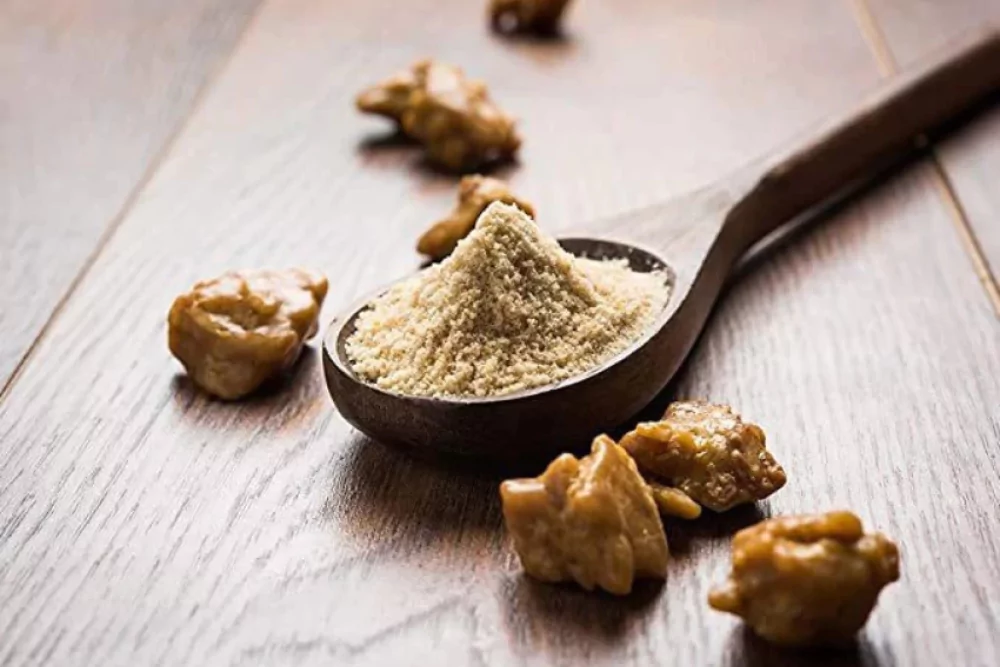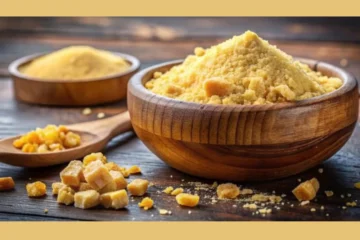Hing in Nutraceuticals is emerging as one of the most promising natural solutions for digestive health, inflammation management, and overall wellness. Asafoetida, traditionally used as a spice in Indian cooking, is now being researched for its potential in supplement form, offering concentrated benefits beyond culinary use. Below, we answer the most common questions to help you understand how hing nutraceuticals can fit into your health routine.
What health benefits does hing offer when taken as a supplement — is it different from using it in cooking?
Short Answer: Hing supplements provide more concentrated digestive, anti-inflammatory, and metabolic benefits compared to hing used in cooking.
Detailed Answer:
- Bioactive Compounds: Hing supplements contain concentrated levels of ferulic acid, sulfur compounds, and flavonoids, which are more potent than those obtained from cooking.
- Digestive Health: Regular use in supplement form supports gut health by reducing gas, bloating, and indigestion more effectively than culinary amounts.
- Anti-inflammatory Benefits: Concentrated hing extracts show potential in reducing chronic inflammation, supporting joint and metabolic health.
- Metabolic Support: Some studies suggest hing supplements may help regulate blood sugar levels and support weight management.
- Difference from Cooking: While cooking with hing provides mild digestive aid, nutraceutical supplements deliver standardized and measurable health benefits.
Can hing supplements help with chronic bloating, IBS, or acid reflux — are they clinically proven?
Short Answer: Hing supplements show promise for gut issues like bloating, IBS, and acid reflux, but more clinical trials are needed for full scientific proof.
Detailed Answer:
- Traditional Use: Ayurveda has long recommended hing for relieving indigestion, gas, and abdominal discomfort.
- Gut Motility: Hing supplements may relax intestinal muscles, reducing cramping and bloating.
- IBS Support: Early research suggests asafoetida may reduce IBS symptoms, though more evidence is required.
- Acid Reflux Relief: Its carminative properties may balance stomach acid and reduce reflux episodes.
- Scientific Evidence: While promising, most studies are preliminary. Clinical trials are ongoing to establish stronger proof.
Are asafoetida supplements safe for daily use — and are there any side effects or dosage limits I should know about?
Short Answer: Hing supplements are generally safe for daily use when taken in recommended doses, but excessive intake may cause mild side effects.
Detailed Answer:
- Recommended Dosage: Most nutraceutical products suggest 200–500 mg per day of standardized hing extract.
- Safety Profile: Generally safe for healthy adults when consumed within limits.
- Possible Side Effects: High doses may cause diarrhea, nausea, or mild headaches in sensitive individuals.
- Drug Interactions: Hing may interact with anticoagulants or antihypertensive medications — consult a doctor if on prescription drugs.
- Pregnancy and Children: Not recommended without medical advice due to hing’s potency.
| Dosage | Effect | Safety |
|---|---|---|
| 200–500 mg/day | Digestive and anti-inflammatory benefits | Safe for most adults |
| >1000 mg/day | Risk of nausea, diarrhea, headaches | Not recommended |
How do hing nutraceuticals compare to other digestive aids like probiotics, fennel, or digestive enzymes?
Short Answer: Hing nutraceuticals complement probiotics, fennel, and digestive enzymes by offering unique anti-inflammatory and carminative benefits.
Detailed Answer:
- Probiotics: Probiotics restore gut flora, while hing primarily reduces gas and bloating — they can work together.
- Fennel Seeds: Both fennel and hing relieve bloating, but hing offers stronger anti-inflammatory properties.
- Digestive Enzymes: Enzymes aid food breakdown, whereas hing relaxes intestinal muscles for smoother digestion.
- Complementary Role: Hing supplements can be paired with these aids for comprehensive gut health.
- Plant-based Advantage: Hing offers an Ayurvedic and vegan-friendly alternative to synthetic enzymes.
| Digestive Aid | Primary Benefit | How Hing Differs |
|---|---|---|
| Probiotics | Balances gut microbiome | Hing reduces bloating, not microbiome-focused |
| Fennel | Relieves mild gas | Hing provides stronger anti-inflammatory action |
| Digestive Enzymes | Helps break down food | Hing relaxes intestines, aiding smoother digestion |
What should I look for when buying hing supplements — are there different types or quality grades?
Short Answer: Choose hing supplements that are pure, standardized, filler-free, and certified for quality and safety.
Detailed Answer:
- Standardized Extracts: Look for supplements that specify concentration of active compounds like ferulic acid.
- Purity: Ensure the product is free from fillers, additives, or artificial colours.
- Form: Hing supplements are available in capsules, powders, and tablets — choose based on convenience.
- Certifications: Check for GMP, vegan, and organic certifications for safety assurance.
- Reputation: Buy from trusted brands that provide third-party lab testing results.
Conclusion
Hing in Nutraceuticals is not just a trend but a natural evolution of a traditional spice into modern health science. From aiding digestion to reducing inflammation, hing supplements are gaining recognition as a valuable part of wellness routines. While more clinical studies are needed, choosing high-quality, standardized products can help you experience the benefits safely and effectively.





